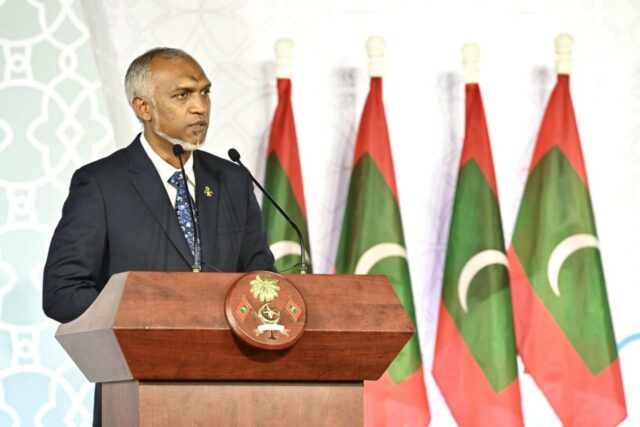
At a time when Sri Lanka’s Hambantota Port is under Chinese control (China Merchant Ports holds an 85% stake), India’s diminished influence in the Maldives following the election of President Mohammad Muizzu, has strategic implications. Former diplomats and naval officers say Maldives is the strategic point by which India could keep “watch on ships operating in its Exclusive Economic Zone (EEZ) which includes Andaman and Nicobar, Lakshwadeep, and the Andaman Sea.”
“Maldives is seen as a strategic outpost by which New Delhi could monitor threats on the southwestern part of the ocean. But now with Muizzu’s insistence on India’s troop withdrawal, which goes hand-in-hand with his ‘India Out’ campaign, New Delhi will not be able to avail of this at least in the interim period,” they said.
There has been little talk about Muizzu visiting Delhi or even if there could be a visit before parliamentary elections on April 21. In fact, the sources said India has few cards to play at this point other than hoping that Muizzu’s Progressive Party of Maldives (PPM) loses or comes off second best in the elections. The People’s Majlis, as the Maldivian Parliament is called, has 87 seats and Delhi would prefer that the Maldivian Democratic Party (MDP) led by pro-India former president Ibrahim Solih retain its majority. That would act as a check on Muizzu. The other possibility is of Muizzu being impeached, but that would be contingent on the opposition winning a majority in parliament as the Constitution requires a two-thirds vote for any impeachment to succeed.
For now it’s clear that Delhi will have to work with Muizzu and hope he tempers his rhetoric. The dislike of India appears irrational.
“Indians make up 60% of doctors across the 1,192 islands of the Maldives and the majority of expatriate teachers in the country are Indian nationals,” sources said. “The Maldives is a net food importing country whose staple foods – rice, sugar, and flour – are all imported, 100 percent, as none of this is grown domestically. Almost all of this comes from India at a very cheap cost. Maldivians know that if they were to import from elsewhere, they will have to pay much more for these goods.”
These facts are not unknown to Muizzu and others in the current dispensation. Also, the point that there are few other options open to them.
“Maldives used to rely on Islamic nations such as Saudi Arabia and Pakistan but that has fallen away,” the sources pointed out. “India has the advantage of being just 300 nautical miles away, so, we have an advantage that no one else has. Going to others like China can put the country into hyper-inflation because goods from there will cost three to four times as much. There is also the security aspect. Both India and Maldives will be concerned about Islamic militant groups that could use the Maldives as a recruitment ground. Both have a vested interest in working together to clamp down on it.”
A visit by Muizzu could help clear up matters but that may have to wait until the parliamentary elections are over.
Traveller, bibliophile and wordsmith with a yen for international relations. A journalist and budding author of short fiction, life is a daily struggle to uncover the latest breaking story while attempting to be Hemingway in the self-same time. Focussed especially on Europe and West Asia, discussing Brexit, the Iran crisis and all matters related is a passion that endures to this day. Believes firmly that life without the written word is a life best not lived. That’s me, Ashwin Ahmad.




